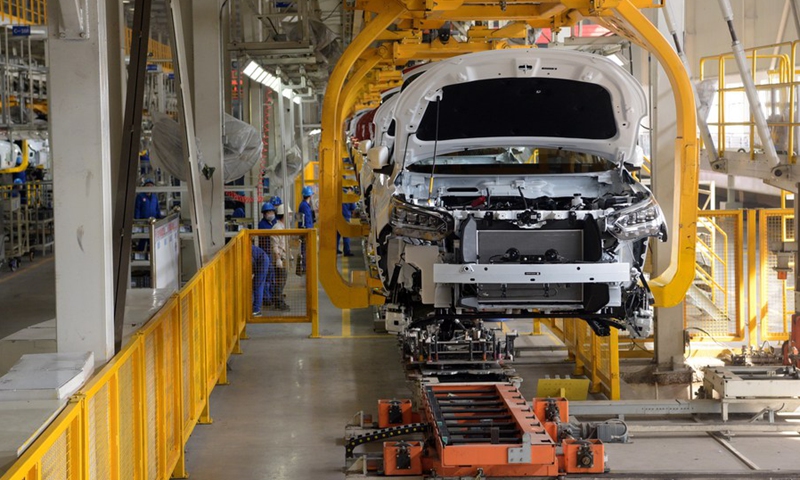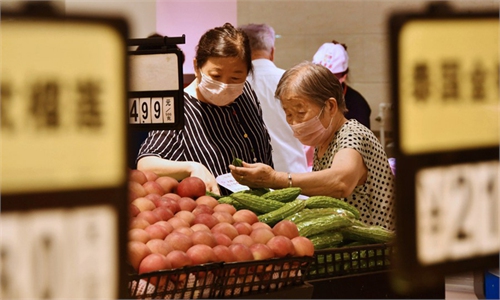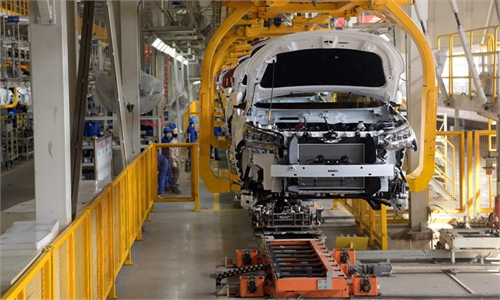
Workers work on the assembly line at a factory of vehicle manufacturer BYD Auto in Xi'an, northwest China's Shaanxi Province, Feb. 25, 2020.(Photo: Xinhua)
China's producer price index (PPI) surged 10.7 percent year-on-year in September, a record high, driven by surging coal and other bulk commodity prices, the National Bureau of Statistics (NBS) announced on Thursday.
Production prices for some energy-intensive industries have surged considerably due to limits on their production capacity, according to Dong Lijuan, a senior statistician with the NBS.
Apart from surging costs for coal and the products of energy-intensive industries, analysts also said that better-than-expected exports in September amid tightened supplies of raw material also contributed to the rise in factory-gate prices.
China's robust exports were a big factor in the PPI, Tian Yun, former vice director of the Beijing Economic Operation Association, told the Global Times on Thursday, noting that rising overseas orders and the surging prices of global bulk commodities were the crucial driving factors of the PPI rise.
Dong Dengxin, director of the Finance and Securities Institute of Wuhan University, said that the supply of global bulk commodities has tightened as a result of the ongoing COVID-19 pandemic, adding that the country's supply and demand of bulk commodities are out of balance. Demand has been surging with the recovery of production, but supply has been tightened, he said.
The PPI reading was up 1.2 percentage points in September month-on-month, with the costs of coal processing prices up 18.9 percent.
Tian said that the PPI will likely keep increasing in the coming months as the country's industrial growth rate has been accelerating amid robust trade.
Coal demand has been surging, especially for residential heating as the winter approaches, but flooding in North China's Shanxi Province, China's main coal mining hub, has restricted the production and transportation of coal, said Dong Dengxin, while referring to related electricity shortages.
Analysts noted that power rationing in some provinces and regions across the country has affected production and further pushed up the prices of some industrial products.
Meanwhile, the consumer price index (CPI) remained steady with a gain of 0.7 percent from August, reflecting stable supply and demand. The figure rose 0.1 percentage points compared with the previous month.
Even though domestic consumption has been gradually recovering from sporadic COVID-19 outbreaks, the overall recovery has not fully met expectations, said Tian.



